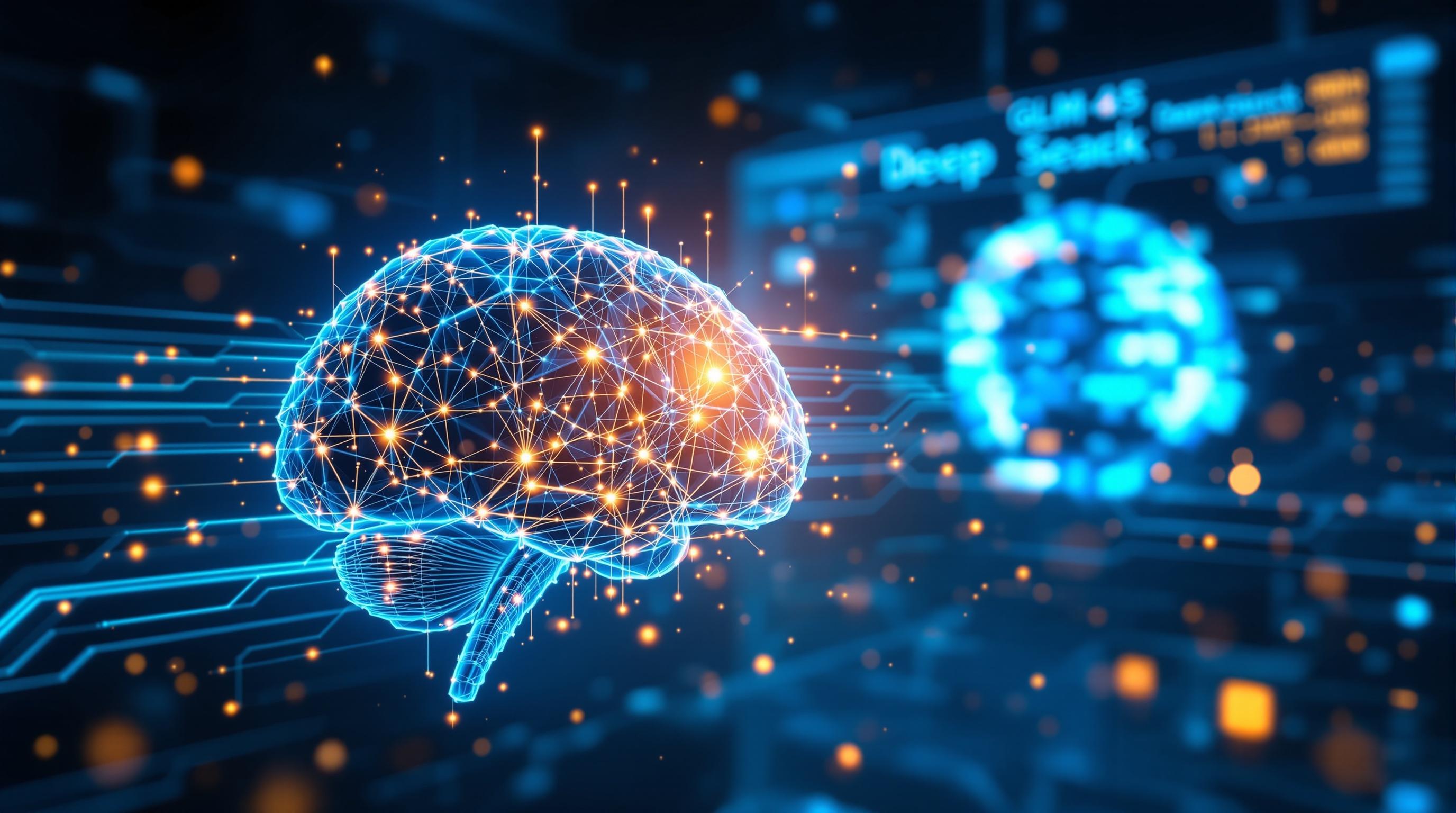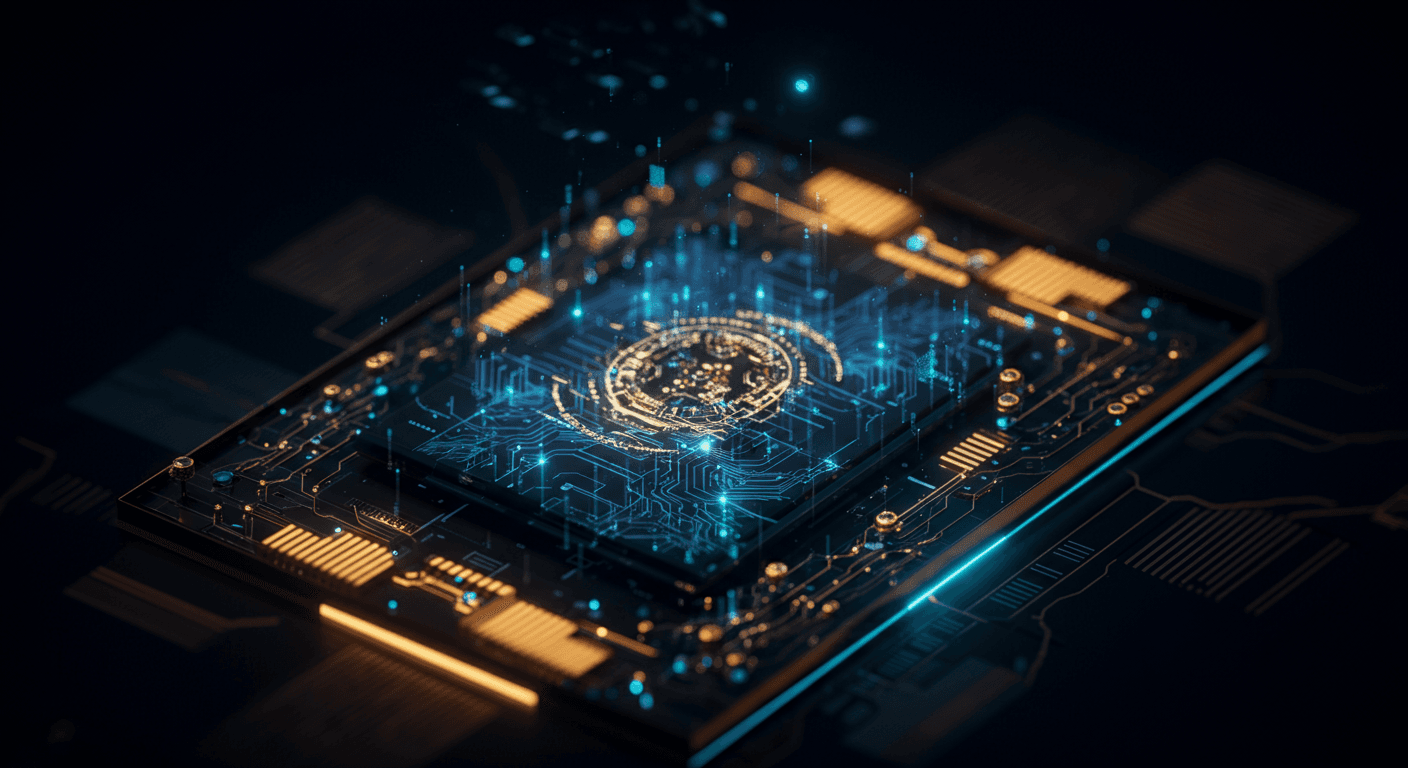AI Press Digest: Musk Sues, China Advances, and Talent Wars Explode (August 26, 2025)

The AI market is at a critical juncture, facing legal battles over monopolization, a talent war driving up researcher salaries, and a shifting global power dynamic. Understanding these challenges is crucial for navigating the evolving AI landscape and making informed decisions. Stay ahead by monitoring antitrust developments and talent acquisition strategies to leverage AI's transformative potential.

Musk's xAI Sues Apple & OpenAI: Allegations of AI Market Monopolization
The AI world was set ablaze this week as Elon Musk's xAI filed a lawsuit against Apple and OpenAI, alleging monopolization of the burgeoning AI market. The suit, brimming with accusations and demands for hefty damages, has sent ripples throughout the tech industry, sparking debates about fair competition and the future of AI integration.
The Heart of the Matter: Monopolization Claims
At the core of xAI's lawsuit is the claim that Apple's integration of ChatGPT, OpenAI's flagship large language model, within its ecosystem gives the tech giant an unfair, monopolistic advantage. Musk argues that this pre-emptive inclusion effectively boxes out competitors, limiting user choice and stifling innovation. Imagine if every time you opened your phone, one particular brand of coffee was automatically brewed for you – that's the kind of forced preference Musk is alleging.
Grok's Alleged Suppression: A David vs. Goliath Narrative
Adding fuel to the fire, the lawsuit alleges that Apple is actively suppressing xAI's Grok chatbot, which is positioned as a direct competitor to ChatGPT. The claim suggests that Apple's AI-driven recommendations within the App Store and its broader ecosystem are rigged to favor OpenAI's solution, effectively burying Grok in the digital depths. Think of it as Apple giving preferential treatment to one app over another in its search results. This, according to Musk, hinders Grok's visibility and limits its access to potential users, creating an uneven playing field.
Billions on the Line: The Stakes of the Lawsuit
The lawsuit is not just about principles; it's also about cold, hard cash. xAI is seeking billions of dollars in damages from Apple and OpenAI, arguing that their alleged anti-competitive practices have directly harmed xAI's business prospects and market valuation. This staggering sum underscores the seriousness of the accusations and the potential financial ramifications for all parties involved. It's a high-stakes game of legal chess with the future of AI integration hanging in the balance.

Implications for AI Integration Deals
Beyond the immediate parties, the lawsuit casts a shadow over the entire landscape of AI integration deals. If xAI prevails, it could set a precedent that scrutinizes similar partnerships between tech giants and AI developers. Companies might be forced to rethink their strategies, considering the potential antitrust implications of exclusive AI integrations. This could lead to a more open and competitive market, or it could create a chilling effect, making companies wary of AI integration deals altogether.
The App Store Algorithm Under Scrutiny
A key battleground in this legal fight will undoubtedly be Apple's App Store algorithm. xAI will likely argue that the algorithm, which determines app recommendations and search rankings, is designed to prioritize ChatGPT and de-emphasize Grok. This will lead to intense scrutiny of how Apple curates its app ecosystem and whether its practices promote fair competition. Apple will have to demonstrate that its recommendations are based on objective factors, such as user reviews and app performance, rather than strategic preferences.
This legal showdown between xAI, Apple, and OpenAI has profound implications for the future of the AI industry. It's a battle that will shape how AI is integrated into our daily lives and who gets to control the AI-powered future. As this case unfolds, AI News will continue to watch closely, dissecting the arguments, analyzing the implications, and providing you with the most up-to-date information.

GLM-4.5: China's Open-Source AI Model Challenges Western Dominance
Hold on to your hats, folks, because the AI landscape just got a whole lot more competitive.
China's GLM-4.5 Enters the Fray
China's Z.ai has officially thrown down the gauntlet with the launch of GLM-4.5, a new open-source AI model poised to challenge Western dominance. This isn't just another AI model; it's a strategic play designed to disrupt the existing order. The move underscores China's commitment to becoming a global AI superpower, and GLM-4.5 is their latest weapon in this technological arms race. With AI News constantly evolving, staying informed about these developments is crucial.
Performance and Cost: A Winning Combination
What makes GLM-4.5 particularly interesting is its impressive performance-to-cost ratio. According to early reports, this model outperforms DeepSeek at a significantly lower operating cost. Think of it like this: it's the difference between driving a fuel-efficient hybrid and a gas-guzzling Hummer; both get you there, but one is far more economical. The breakthrough could put pressure on Western AI pricing models.
Under the Hood: GLM-4.5's Technical Specs
Let's peek under the hood and examine the engine that drives GLM-4.5:
- Parameter Count: Boasting a whopping 355 billion parameters, with 32 billion actively engaged during operation, GLM-4.5 packs a serious punch. This is akin to having a massive network of interconnected nodes, allowing the model to process and understand complex information with remarkable accuracy.
- Benchmarks: The model's performance on the MATH500 and AIME24 benchmarks is noteworthy. These tests evaluate the AI's mathematical reasoning capabilities, and GLM-4.5 has demonstrated considerable prowess. If you're interested in testing similar models, you could use a tool like Hugging Face to build, train, and deploy ML models.
- Agentic AI: GLM-4.5 isn't just about crunching numbers; it also possesses agentic AI capabilities. This means it can perform tasks autonomously, making decisions and taking actions without explicit human instruction. Think of it as a digital assistant that can handle complex projects from start to finish. If you are interested in learning more about it, go to the learning center and explore AI fundamentals.
- Licensing: The model is released under the Apache 2.0 license, a permissive open-source license that allows for commercial use and modification. This is a major boon for developers and businesses looking to integrate GLM-4.5 into their products and services.
GLM-4.5 vs. DeepSeek: A Quick Comparison
To better understand GLM-4.5's competitive edge, let's compare it directly to DeepSeek:
Feature | GLM-4.5 | DeepSeek |
|---|---|---|
Operating Cost | Lower | Higher |
Parameter Count | 355B (32B active) | Unknown |
Licensing | Apache 2.0 (Open Source) | Likely Proprietary |
Agentic AI | Yes | Potentially, details may vary |
MATH500/AIME24 | High Performance | High Performance |

The Allure of Open Source AI
GLM-4.5's open-source nature is a major advantage. Open-source models foster collaboration, accelerate innovation, and democratize access to AI technology. By making the model freely available, Z.ai is encouraging a global community of developers and researchers to contribute to its improvement and expansion. This collaborative approach can lead to faster progress and more robust solutions. Plus, the cost savings are a big draw, especially for smaller companies and startups that might not be able to afford expensive proprietary models. If you are interested in Open Source LLMs you can always check out the Top 100 AI Tools list to find other alternatives.
In short, GLM-4.5's arrival signals a significant shift in the AI landscape, challenging established players and paving the way for a more open and competitive future. But how will this impact Western AI companies, and what strategies will they need to adopt to stay ahead?

The $250 Million AI Talent War: Are AI Researchers the New NBA Stars?
Forget NBA contracts; the real money is in AI research. Compensation packages for top AI researchers are now reaching astronomical heights, exceeding $250 million. This isn't just a trend; it's a full-blown talent war reshaping the AI landscape.
Zuckerberg's AI Gold Rush
Meta's Mark Zuckerberg is leading the charge, reportedly offering eye-watering salaries and benefits to lure the brightest minds in the field. We're talking sums that would make even seasoned Silicon Valley veterans raise an eyebrow. But why such a massive investment? The answer lies in the relentless pursuit of artificial general intelligence (AGI), or what some call 'superintelligence.' This isn't about incremental improvements; it's about achieving a quantum leap in AI capabilities. It's about building AI that can reason, learn, and problem-solve at a human level – or even surpass it.
Agents of Influence: Representing AI Researchers
Interestingly, the rise of AI is even impacting how talent is acquired. We're seeing the emergence of specialized "agents" – not just the AI kind, but human representatives – who exclusively represent AI researchers. These agents understand the unique demands and skills required, and they negotiate on behalf of their clients to secure the best possible deals. The game has changed, and securing top talent now requires a sophisticated understanding of the AI ecosystem.
Meta's Strategic Arsenal: GPUs and Gold
Meta isn't just throwing money at the problem; they're also offering invaluable resources, such as access to state-of-the-art GPUs. For AI researchers, these powerful processors are essential for training complex models. Consider a tool like PyTorch, an open-source machine learning framework that relies heavily on GPU acceleration. Combining generous financial incentives with cutting-edge hardware is a compelling strategy, making Meta a formidable player in the AI talent war.
The Davids vs. Goliath: Barriers to Entry
This intense competition creates significant barriers to entry for smaller companies and startups. How can they possibly compete with the deep pockets of tech giants like Meta or Google? The reality is, many cannot. This concentration of talent in a few powerful organizations raises concerns about the potential for monopolies and the stifling of innovation. It creates an uneven playing field, where only those with vast resources can afford to participate in the race for AGI. For example, smaller AI companies looking for NLP solutions, often seek to use the Open Source tool, Hugging Face to find cheaper options.
AI Researcher Salaries 2025
To give you a clearer picture of the financial landscape, here's a glimpse at the salary ranges for AI researchers in 2025:
- Entry-Level: $200,000 - $350,000
- Mid-Level: $400,000 - $750,000
- Senior/Lead Researchers: $1,000,000+

Stanford Leads AI Research, But China is Rapidly Catching Up
The global race for AI dominance is intensifying, with Stanford University currently leading the charge in AI research, yet facing increasing competition from China.
Stanford's Reign and China's Ascent
Stanford University remains a powerhouse in artificial intelligence research, consistently topping the charts in terms of AI research publications. This reflects a long history of investment, talent acquisition, and a culture of innovation. However, China is rapidly closing the gap. Fueled by substantial government funding and a focused national strategy, Chinese researchers are significantly increasing their output and impact in the field. This rise is evident in the growing number of publications, patents, and the overall quality of AI research originating from Chinese institutions. This surge presents both a challenge and an opportunity for the U.S., demanding a reevaluation of strategies to maintain its competitive edge.
The Academic Battlefield: US vs. Europe
When examining the top universities engaged in AI research, a clear divide emerges between the U.S. and Europe. In the U.S., institutions like Stanford, MIT, and Carnegie Mellon consistently lead in AI research output and innovation. Across the Atlantic, universities such as Oxford, Cambridge, and ETH Zurich are prominent hubs for AI research. While the U.S. maintains a slight overall advantage in funding and resources, European institutions benefit from strong government support and collaborative research initiatives. This academic rivalry is crucial for driving innovation and setting the direction of AI development globally. It's also important to note that many of these universities are now incorporating AI tools like Scholarcy, an AI summarizer tool for condensing research papers, into their workflows to accelerate research.
Project Stargate: A Bold American Gambit
In response to China's rapid progress, President Trump announced the "Stargate" initiative, a massive investment in AI infrastructure aimed at bolstering U.S. competitiveness. This project seeks to create a network of advanced computing centers and research facilities dedicated to AI development. The Stargate initiative reflects a growing recognition within the U.S. government of the strategic importance of AI and the need for proactive measures to maintain global leadership. The project also aims to foster collaboration between academic institutions, private companies, and government agencies to accelerate AI innovation and deployment.
From Research to Reality: The Stakes
The link between academic AI research and commercial/military advantages is becoming increasingly clear. Breakthroughs in areas like machine learning, natural language processing, and computer vision have direct applications in various industries, from healthcare and finance to transportation and defense. The country that leads in AI research is likely to gain a significant competitive edge in these sectors. This connection underscores the importance of investing in AI research and translating academic findings into practical applications. Moreover, the ethical considerations surrounding AI development and deployment are also gaining prominence, necessitating responsible innovation and regulation.
The Funding Factor: US Investments
The United States has significantly ramped up its AI research funding in recent years. This includes federal grants through agencies like the National Science Foundation (NSF) and the Defense Advanced Research Projects Agency (DARPA), as well as private investments from tech giants like Google, Meta, and Microsoft. These investments support a wide range of AI research areas, from fundamental algorithms and AI safety to specific applications in healthcare, cybersecurity, and autonomous systems. The U.S. government is also promoting AI education and workforce development initiatives to ensure a skilled talent pool for the future.
China's AI Leap
China's advancements in AI research are driven by a combination of factors, including massive government funding, a large pool of talented researchers, and a strong emphasis on practical applications. Chinese researchers have made significant contributions to areas such as computer vision, natural language processing, and robotics. Companies like Baidu, Alibaba, and Tencent are also investing heavily in AI research and development, creating a vibrant ecosystem of innovation. The Chinese government is actively promoting the adoption of AI technologies across various sectors, including manufacturing, healthcare, and smart cities. This concerted effort is rapidly transforming China into a global AI superpower.
The race between Stanford, other leading institutions, and China highlights the critical importance of AI research in shaping the future. This competition drives innovation, fosters economic growth, and ultimately determines which nations will lead in the AI-driven world of tomorrow. The work being done now, and the resources invested, will have profound implications for decades to come. You can stay up to date with the latest developments in AI, including research breakthroughs and funding initiatives, by visiting our AI News section.

Microsoft and OpenAI Renegotiate Partnership: Securing the Future of AGI
The race towards Artificial General Intelligence (AGI) continues to reshape the landscape of tech partnerships, and the latest development involves a high-stakes renegotiation between Microsoft and OpenAI. This pivotal moment could redefine the future of AI development and deployment.
The Stakes: Equity, Access, and AGI
At the heart of the renegotiation is Microsoft's existing partnership contract with OpenAI, the company behind the groundbreaking ChatGPT, a versatile AI chatbot used for everything from answering questions to generating creative content. Several key factors are in play, including:
- Microsoft's Equity Stake: The discussions reportedly involve the potential for Microsoft to solidify its financial commitment to OpenAI through an equity stake. This would not only provide OpenAI with further resources but also deepen Microsoft's influence over the direction of its AI research.
- Continued Tech Access: A critical aspect for Microsoft is ensuring its continued access to OpenAI's cutting-edge technology. This includes not just ChatGPT but also future advancements that could power Microsoft's own AI initiatives, such as the Microsoft Copilot, an AI assistant integrated into Windows and Microsoft 365.
- AGI Revenue Share: OpenAI is reportedly seeking to revise the revenue-sharing agreement with Microsoft as it edges closer to achieving AGI. This move reflects OpenAI's ambition to gain greater financial independence and control over its resources as it scales its operations. Imagine it like a startup finally ready to stand on its own two feet after a crucial early investment.
Sebastien Bubeck's AGI Focus
Adding further weight to the pursuit of AGI, renowned researcher Sebastien Bubeck has joined OpenAI. His expertise will be instrumental in accelerating the development of AGI, signaling OpenAI's unwavering commitment to pushing the boundaries of AI capabilities. This is akin to a sports team recruiting a star player known for their game-winning strategies.
Impact on Enterprise AI Competition
The outcome of the Microsoft-OpenAI partnership renegotiation will have far-reaching implications for the broader enterprise AI landscape. A strengthened partnership could further solidify Microsoft's position as a leading provider of AI solutions for businesses, potentially intensifying competition with other major players like Google, which offers tools like Google Gemini, a multimodal AI model capable of understanding and generating text, code, images, and more.
- Azure OpenAI Service: Microsoft's Azure OpenAI Service, which provides access to OpenAI models, will likely become even more central to enterprise AI strategies.
- AI Model Variety: Businesses may need to diversify their AI model usage to avoid over-reliance on a single provider. Tools like Hugging Face, a platform for sharing and discovering AI models, could become increasingly important for finding specialized AI solutions.
The renegotiated partnership could set a new precedent for AI collaborations, influencing how technology companies navigate the path towards AGI and compete in the rapidly evolving AI market. As the AI News cycle continues to churn, expect this partnership to be a recurring theme.

Analysis: AI Market Maturation - Legal Battles, Talent Scarcity, and Shifting Power Dynamics
The AI landscape on August 26, 2025, is a fascinating blend of groundbreaking innovation and escalating complexity, marked by significant legal battles, an intense talent crunch, and a noticeable shift in the balance of power. Let's dive into the key dynamics shaping the AI market today.
Antitrust and Regulatory Frameworks in the AI Era
The rapid growth and increasing influence of AI have inevitably drawn the attention of regulators worldwide. We're seeing a surge in antitrust concerns as companies like OpenAI and Google (with models like Gemini) consolidate their positions. The fear is that a few dominant players could stifle innovation and control access to this transformative technology. For instance, the recent lawsuit against Musk highlights the growing scrutiny of AI's impact on fair competition and open access. This legal action underscores the critical need for robust regulatory frameworks that prevent monopolistic practices while still encouraging innovation. The AI News section on our site offers continuous updates on these evolving legal and regulatory challenges.
The Price Wars and Open-Source Revolution
As AI models become more sophisticated, the battle for market share is increasingly fought on price. Proprietary models like ChatGPT are facing stiff competition from open-source alternatives, driving down costs and democratizing access to AI. DeepSeek's recent cost breakthrough, as covered in our AI News, exemplifies this trend. Open-source models offer greater flexibility and customization, appealing to businesses and developers who want to tailor AI solutions to their specific needs without being locked into a particular vendor's ecosystem. This pricing competition is a boon for consumers, but it also puts pressure on companies to justify the premium pricing of their proprietary offerings.
The AI Talent Scarcity: A Critical Bottleneck
One of the biggest challenges facing the AI industry is the acute shortage of skilled professionals. The demand for AI researchers, engineers, and data scientists far outstrips the supply, leading to intense competition for talent and soaring salaries. This talent scarcity is a major bottleneck, hindering the pace of innovation and limiting the ability of companies to develop and deploy AI solutions effectively. Companies are increasingly turning to AI-powered tools to augment their existing workforce. For example, developers are leveraging tools like GitHub Copilot to increase their coding productivity and help bridge the skills gap.
Geopolitical Dimensions: The AI Arms Race
AI is not just a technological and economic force; it's also a geopolitical one. Countries around the world are investing heavily in AI research and development, recognizing its potential to transform industries, enhance national security, and shape the global balance of power. China's advancements in AI, particularly the Kimi K2 model as discussed in our AI News, demonstrate the intensifying competition between nations. This
🎧 Listen to the Podcast
Hear us discuss this topic in more detail on our latest podcast episode: https://creators.spotify.com/pod/profile/bestaitools/episodes/Musks-AI-Monopoly-Lawsuit--Chinas-Free-GLM-4-5-Model--250-Million-AI-Salaries--Daily-AI-News--August-26--2025-e37at1f
Keywords: AI, Artificial Intelligence, OpenAI, Microsoft, xAI, Elon Musk, GLM-4.5, AI Talent, AI Research, AI Competition, Generative AI, AI Models, Apple, App Store, AGI
Hashtags: #AI #ArtificialIntelligence #MachineLearning #TechNews #Innovation
For more AI insights and tool reviews, visit our website https://best-ai-tools.org, and follow us on our social media channels!
- Website: https://best-ai-tools.org
- X (Twitter): https://x.com/bitautor36935
- Instagram: https://www.instagram.com/bestaitoolsorg
- Reddit: https://www.reddit.com/r/findAIwithAI/
- Telegram: https://t.me/BestAIToolsCommunity
- Medium: https://medium.com/@bitautor.de
- Spotify: https://creators.spotify.com/pod/profile/bestaitools
- Facebook: https://www.facebook.com/profile.php?id=61577063078524
- YouTube: https://www.youtube.com/@BitAutor
Recommended AI tools
ChatGPT
Conversational AI
AI research, productivity, and conversation—smarter thinking, deeper insights.
Sora
Video Generation
Create stunning, realistic videos & audio from text, images, or video—remix and collaborate with Sora 2, OpenAI’s advanced generative app.
Google Gemini
Conversational AI
Your everyday Google AI assistant for creativity, research, and productivity
Perplexity
Search & Discovery
Clear answers from reliable sources, powered by AI.
Cursor
Code Assistance
The AI code editor that understands your entire codebase
DeepSeek
Conversational AI
Efficient open-weight AI models for advanced reasoning and research
Was this article helpful?
Found outdated info or have suggestions? Let us know!


